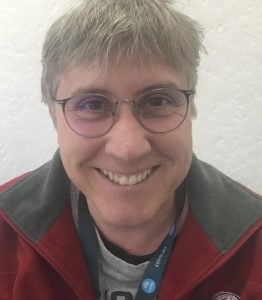25 June 2024
Regrettably, the IMBIZO7 Conference has been canceled due to unforeseen circumstances. The information previously provided on this page is no longer applicable.
Workshop 2: A framework for development of social-ecological models of transformative change for sustainable ocean management
Keynote Speaker: Beth Fulton

Beth Fulton is a Principal Research Scientist with CSIRO Oceans and Atmosphere. She is also the Deputy Director of the Centre of Marine Socioecology and the Research Program Leader for Ecosystems and Environment in the Australia Blue Economy Cooperative Research Centre. Beth has vast experience in ecosystem modelling and sustainability, working with a broad range of collaborators to find practical means of achieving ecosystem-based management and sustainability. She has developed various system modelling tools, the best known of which is the Atlantis modelling framework that has been applied in more than 40 marine ecosystems around the world. The models developed by Beth’s team are some of the first to give equal attention to biophysical and human components of marine and coastal ecosystems and have been used to consider effective means of conserving and monitoring marine and coastal ecosystems.
About this workshop
The overall objective of this workshop is to share experiences of social-ecological modelling approaches to study different future pathways for transformative changes in the ocean. The focus will be on how to do this rather than on theory and the need for this type of modelling. Different case studies will be used to advance the frontiers of which processes are possible to model systematically. We aim to develop a framework for better understanding how social-ecological models can be used to inform transformative management actions towards sustainable future oceans.
Key social-ecological modelling approaches will be explored across case studies. Specific questions to be discussed in the workshop include:
- Which different kinds of social-ecological modelling approaches have been used, at which scales and for which sectors or components of the system?
- How are context- and path-dependent processes being addressed?
- What social-ecological observations/data are used for the model testing and validation, and how? And what strategy has been used for data-poor environments?
- How can qualitative and quantitative models/methods of different complexity be integrated to address transformation pathways to help ocean management?
- How can cumulative impacts across sectors be modelled?
- Which uncertainty-handling methods and information are used?
Outcomes and expected impact
The workshop will develop a social-ecological modelling framework mapping how transformative change can be modelled to inform sustainable ocean management. This framework will also consider different modelling approaches (qualitative, participatory, quantitative, scenario-based). An outlook paper focusing on “the how” is planned to be the key output of the workshop.
